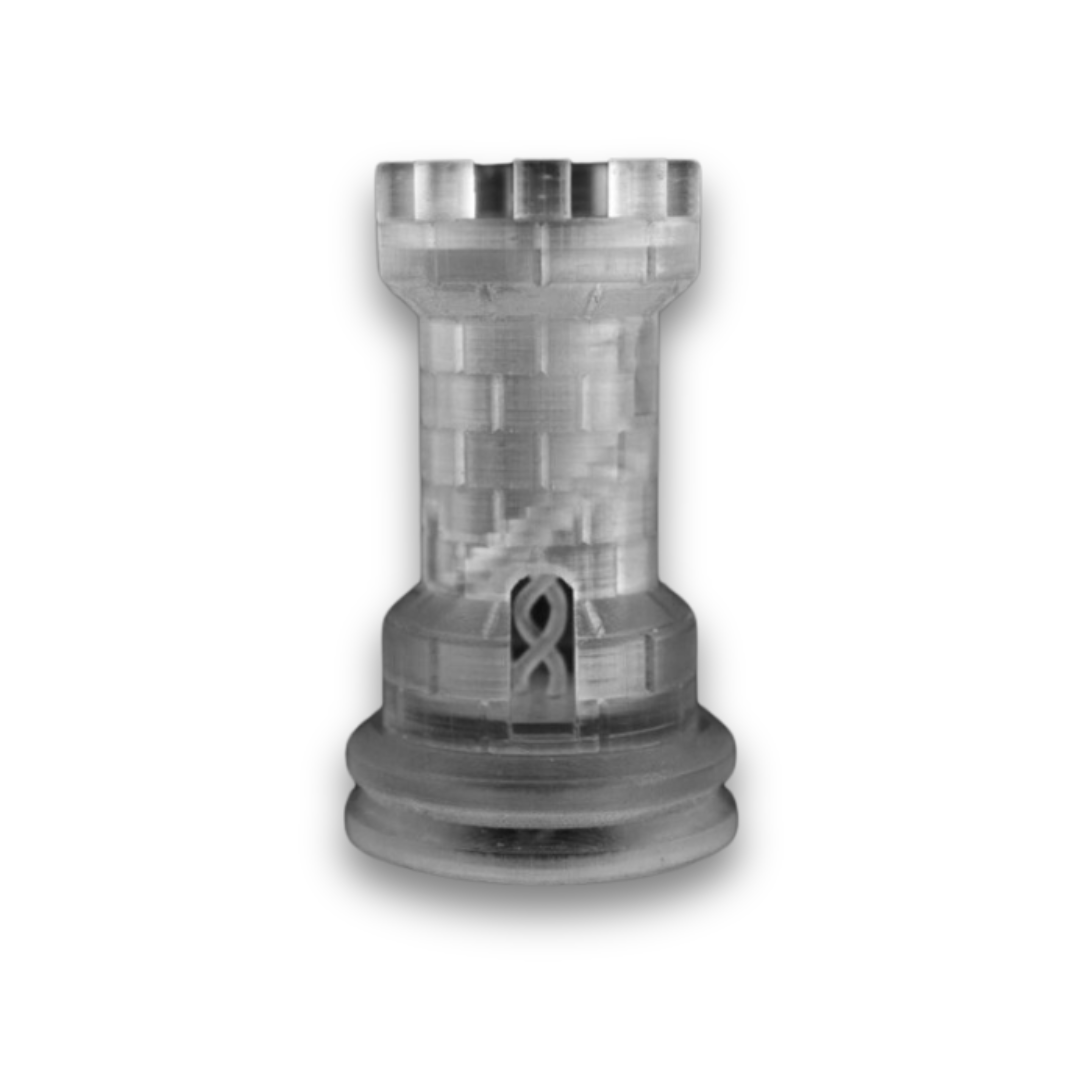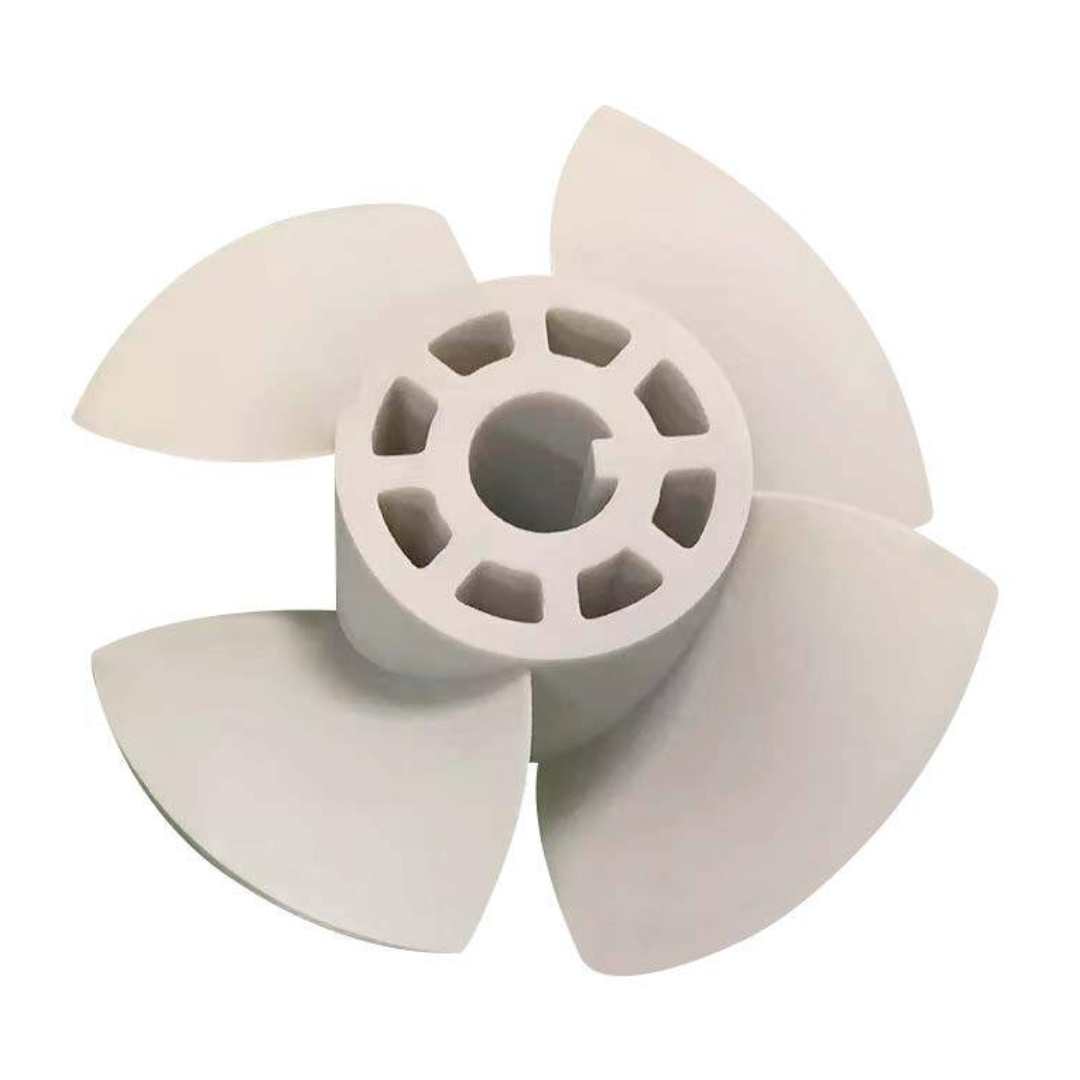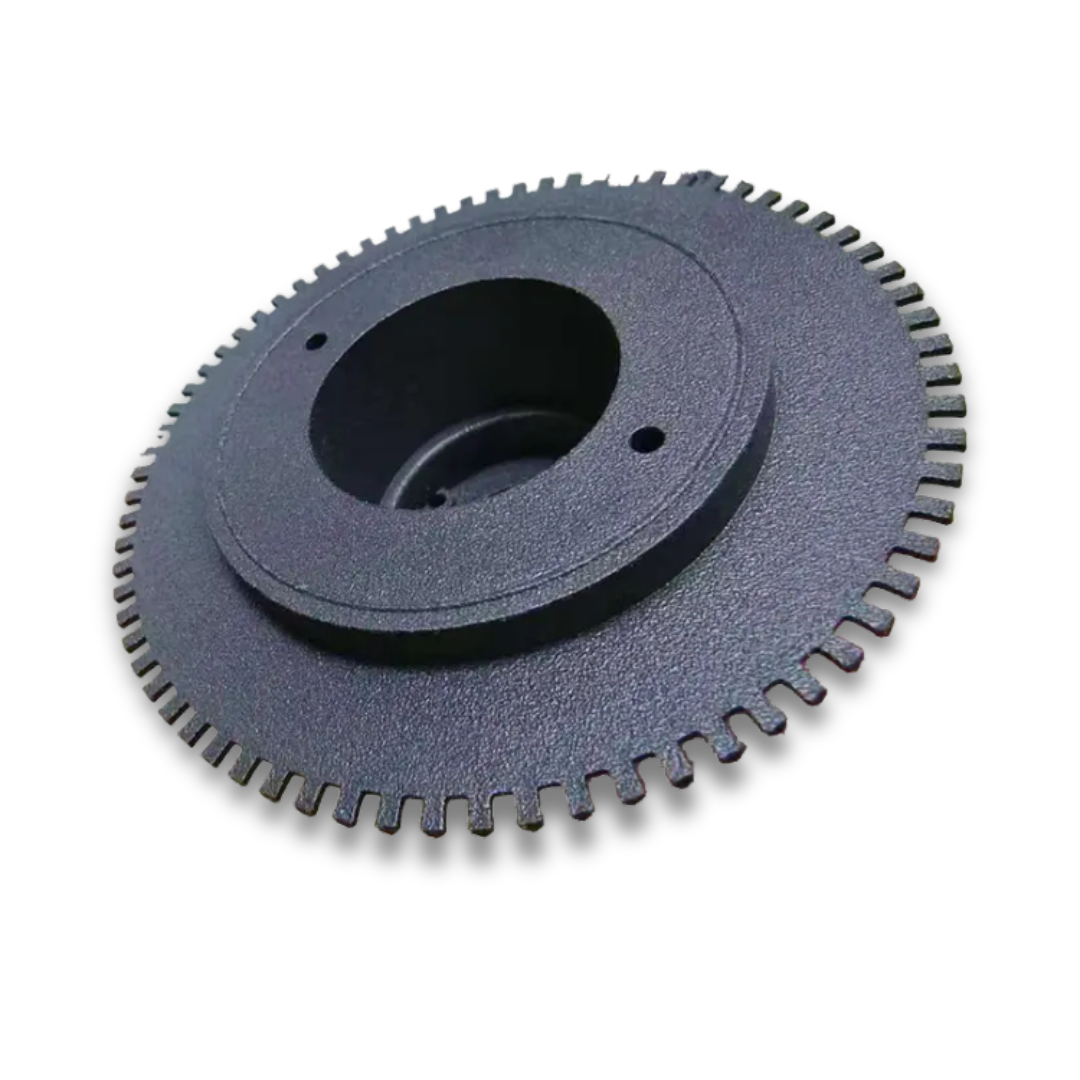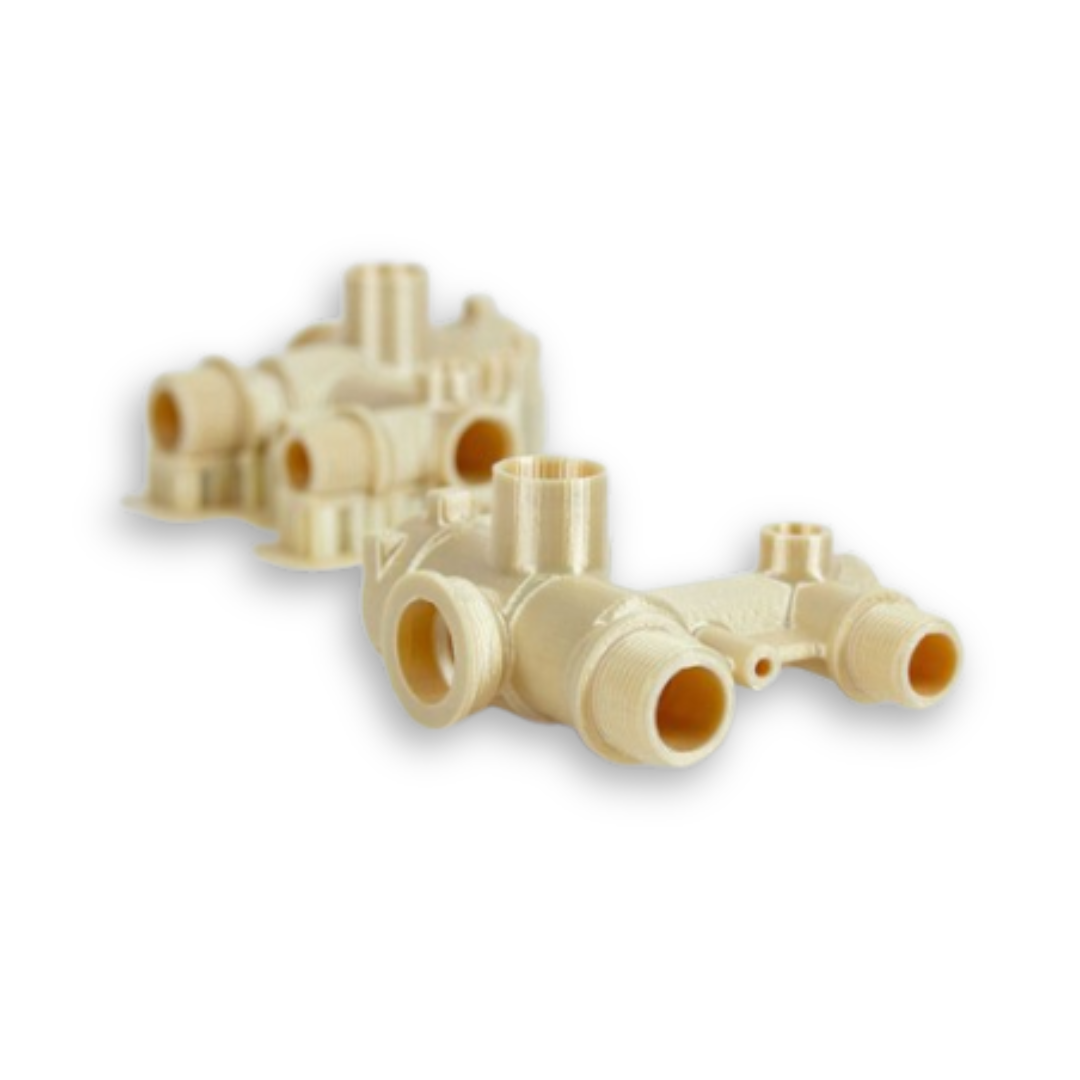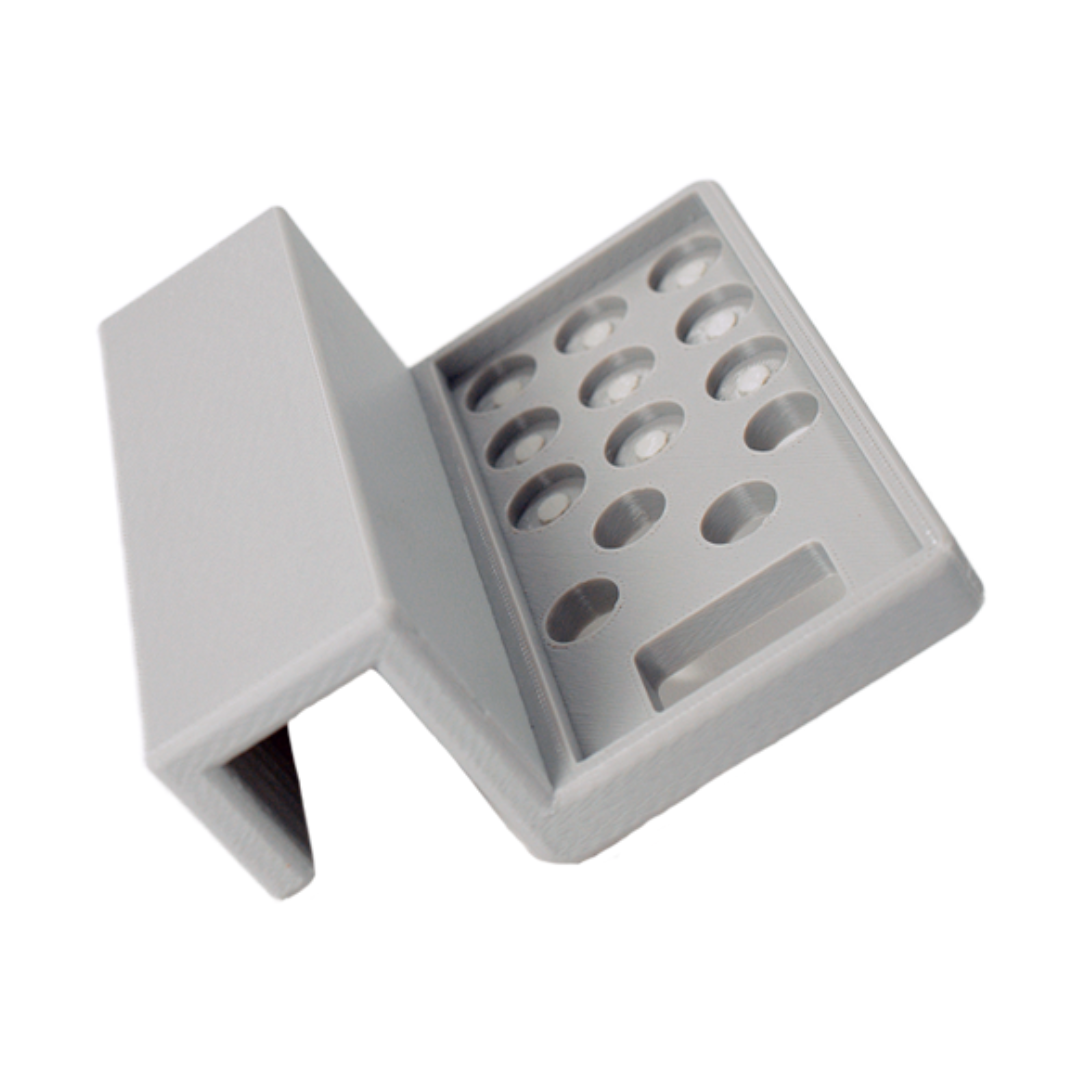ABS
ABS (Acrylonitrile Butadiene Styrene) has good mechanical properties, with excellent impact strength, moderately heat-resistant, superior to PLA, but less defined details. Although it is ideal for low-cost prototypes, 3D printing in ABS can also be used for end-parts.
Key Features and Benefits
Durability and Impact Resistance
ABS is celebrated for its exceptional toughness, making it the go-to material for applications where strength and durability are non-negotiable.Customizability
Easily machinable, sandable, and paintable, ABS allows for extensive customization, enabling tailored designs and premium finishing options to meet specific needs.Color Variety
Available in a wide range of colors, ABS offers incredible design flexibility, making it an excellent choice for projects that prioritize aesthetics.Sustainability
As a recyclable material, ABS supports eco-friendly manufacturing practices, aligning with sustainability goals and reducing environmental impact.Heat Resistance
Capable of withstanding high temperatures, ABS proves its versatility in challenging and high-performance environments.
Common Applications
ABS (Acrylonitrile Butadiene Styrene) is a highly versatile material with a broad range of applications across multiple sectors. Here’s how its unique properties drive innovation:
Automotive and Aerospace Prototypes
Thanks to its exceptional impact resistance, ABS is a top choice for creating durable and functional prototypes in the automotive and aerospace industries.
Consumer Electronics and Household Appliances
The adaptability of ABS allows for the production of highly customizable components, making it ideal for bespoke parts in consumer electronics and home appliances.
Safety Equipment Components
ABS’s renowned durability and toughness make it a preferred material for manufacturing critical safety gear, such as helmets and protective equipment.
Household and Office Products
With its wide color options and sustainability features, ABS is commonly used for producing a variety of items, from toys and containers to furniture and office essentials.
Material Properties
| Properties | Value |
|---|---|
| Tensile Strength (MPa) | 40 |
| Flexural Modulus (MPa) | 1203 |
| Elongation (%) | 30 |
| Heat Distortion Temp (°C) | 73 |
| Impact Resistance (kJ/m²) | 42 |
Technology
Fused Deposition Modeling (FDM)
Color & Finishes
 Black
Black
 White
White
 Color
Color
Start your next project with us today
Manufacturing limitless possibilities with industrial fabrication solutions.


